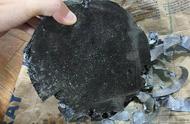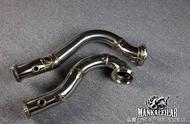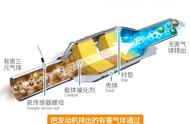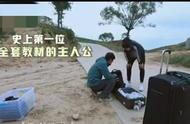
英语学习中有一些知识点很多同学容易弄混淆,今天来时给大家总结一下,一定会对你的英语学习有帮助,认真看看吧!

either…or 和 neither…nor 连接两个主语时,谓语动词在人称和数上必须与后面的主语保持一致
both…and 连接两个主语时,谓语动词必须用复数
either…or 意为“或者……或者”、“要么……要么”
neither…nor 意为“既不……也不”;both…and 意为“两者都”
- There were either too big or too small.他们要么太大了,要么太小了。
- Either you or I am right.要么你对,要么我对。
- Neither you nor he has been there.你和他都没去过那里。
- Both John and Ann have got pen-friends.约翰和安都有笔友。
- He speaks both English and French.他讲英语和法语。
(1)make sure 意为“确保;确信;查明”,后面常接宾语从句及由 of 引起的短语。Make sure (that) he comes at once.一定叫他马上来。
- You’d better make sure of time.你最好查明时间。
- Make sure of it before you start out.出发前查明这件事。
(2)be sure 意为“肯定;确定”, be sure 后可跟不定式或“疑问词 不定式”,构成 be sure to do, be not sure whether to do 结构,要注意“疑问词 不定式”一般用在否定句中。be sure 后还可跟从句,肯定句后跟 that 从句,否定句后跟 if /whether 从句。
- He is sure to come.他肯定会来。
- I’m not sure whether to go there/when to leave.我不确定是否要去哪儿/何时离开。I’m sure that I can run faster than you.我确定自己比你跑得快。
- I’m not sure whether they can finish the job on time.我不确定他们是否能及时完成工程。
- Be sure to come to our party if you have time.如果有时间的话一定要来参加我们的聚会。
- Be sure to finish it as soon as possible.请务必尽快完成。
(1)late可作形容词或副词,意为“迟(的);晚(的)”。
- He often comes late for school.他上学常迟到。
- They were late for the film.他们看电影迟到了。
(2)lately 是副词,意为“最近;近来”相当于recently,常与现在完成时连用。
- I haven’t heard from him lately.我最近没收到他的来信。
(3)later为late的比较级,意为“较迟的(地)”。另外,还可用作副词,意为“后来”。
- He goes home later than anybody .他回家比谁都晚。
- See you later .回头见。
(4)latest为late的最高级,意为“最迟的(地)”;也相当于newest,意为“最新的”。
- I go to bed latest in the family.我是家里睡觉最迟的。
- Here is the latest news from abroad.下面是来自国外的最新消息。
(1)sick和ill都有“患病”之意,都可以作表语,美国英语中常用sick作表语。英国英语中常用ill作表语。
- His mother is ill.(英国用法)他的母亲生病了。
- His mother is sick.(美国用法)
(2)但用在名词前作定语时,英国英语、美国英语均用sick而不能用ill.
- He is looking after his sick mother.他在照顾生病的母亲.
(1)feel like 中的like是介词,后跟名词或动名词.如:
- I feel like sleeping/taking a walk.我想睡/散步。
- I don’t feel like walking very much today.今天我不想走太多的路了。
- Do you feel like having something to eat?你想要点东西吃吗?
- I feel like a cup of tea. 我想喝杯茶。
- I feel like some fish and chips for supper.晚饭我想吃些鱼和土豆条。
- It’s so hot. I feel like a swim.天真热,我想去游泳。
(2)would like 中的like 是动词,后跟不定式或名词。如:
- What would you like to do now ?你现在想做什么?
- I would like to have dinner with you.我想和你一起吃饭。
- I would like to talk to you for a minute .我想和你谈一下。
- Would you like some help?你需要帮助吗?
(1)cause是造成一种事实或现象的“原因”。后接介词of.如:
- Carelessness is the usual cause of fire.造成火灾的原因通常是不谨慎。
- Heat is the cause of the expansion of matter.热是物体膨胀的原因。
(2)reason是说明一种看法或行为的“理由”。后接介词for.如:
- You must tell him the reason why you won’t accept his offer.你必须告诉他你为何拒绝他的提议。
(1)get through 和 go through 表示“通过(某地、议案等);用完”时可互换使用。The man was so fat that he couldn’t get/go through the door。那人胖得连那扇门都过不去。
- The plan for this term will have to get/go through the leading group of the school。本学期计划得经校领导班子通过。
- I have got/gone through three pairs of shoes in a month..这一个月内我穿坏了三双鞋。
(2)get through 和 go through又各有其意义:get through :通过考试;接通电话
- I got through everything except English .除英语外我别的都极格了。
- I can’t get through to Beijing.The line is busy.我打不通北京的电话,占线。
- go through:检查;看一遍;经历(困难,痛苦)
- I went through my homework to make sure that nothing had been missed.我将作业检查了一遍,以确定什么都没有漏掉。
- Go through the text from the beginning .把课文从头看一遍。
- She must have gone through a lot.她一定吃了不少苦。
(1)manage to do 意为“设法做成了某事”,强调其结果是成功的。
- The firefighters managed to put out the fire at last.消防队员们终于设法扑灭了大火。
- He managed to do the operation with very little help.在没有多少帮助的情况下,他设法把手术做成功了。
(2)try to do意为“尽力做某事”。如:
- You have to try to write every word neatly and correctly 。你得尽力把每个字写得既清楚又准确。
- He tried to open the door,but he couldn’t . 他想把门打开,但未能做到。
(1)loving意为“爱慕的;钟情的;深情的。”
- He gave her a loving kiss.他给了她一个深情的吻。
(2)lovely 意为“可爱的,美丽的;迷人的”。
- The house has many large rooms and there is a lovely garden.这幢房子有很多大房间,并有一个惹人喜爱的花园。
(3)lovable 意为“可爱的,惹人爱的”。多形容人或动物。有时可以与lovely互换。She is a lovable child.她是个可爱的孩子。
- It is a lovable kitten.它是一只可爱的小猫。
(1)两者用法基本相同,都可作”看起来(好像)……”讲,后面可跟形容词,分词,名词,不定式或that从句。
- It appears/seems that he will win the prize.看来他要获奖了。
(2)seem可跟随as if 从句,而appear不能,appear强调外表上给人某种 印象,有时含有实质上并非如此之意;而seem则暗示判断有一定根据,这种判断往往接近事实.
- At that time, it seemed as if I couldn’t think of the right word anyhow.当时,我似乎怎么也想不出一个恰当的字眼来。
- His health seems to have grown better.他的健康似乎有所好转。
- He seems to be sick, for he appears pale. 看样子他病了,因为他面色看起来很苍白。
- He appears to know more than he really does.他看起来好像懂得很多,其实懂得没有那么多。
(1)speak强调说话的能力、方式和对象,不强调说话的内容,常以某种语言作宾语,作不及物动词时,常见搭配有:speak of sth./sb.“谈到某事,某人”,speak to sb.“与某人说话”。
- Can you speak French?你会说法语吗?
- Whom did you speak to just now?你刚刚在跟谁说话?
(2)talk 是不及物动词,着重强调两个人之间的相互说话,常见词组有:talk with sb.和某人谈话 talk about sb./sth谈论某人、某事.talk of 谈到 talk to sb与某人谈话She is talking with Mark in French.她正跟马克用法语交谈。
- We are talking about our summer holiday.我们在谈论暑假。.
(3)say 一般作及物动词,强调说话的内容。
- What did you say just now?你刚刚说了什么?
- Let’s go and say hello to him.让我们去向他问个好吧
(4)tell常作及物动词,表示“讲述,告诉”,后面常跟随双宾语,即tell sb.sth..还可用在tell of sb./sth.中。
- will tell you the truth tomorrow.我明天将告诉你实情。
- He often tells of his sister.他经常谈到他的姐姐。
(1)happen往往还有“偶然”或“未能预见”的意思。
- I didn’t buy it, because it happened that I had no money on me.我没买那东西,因为当时碰巧身上没带钱。
(2)occur有时按计划使某些事或结果“发生”,有时强调“呈现”于人的知觉、心脑。
- It didn’t seem to have occurred to him that the masses, once mobilized, could work greater wonders than any individual could dream of .他仿佛没有想到群众一旦动员起来,可以做出任何人所梦想不到的奇迹
(3)take place可指事件“发生”,但更常用表示“举行”。
- The meeting took place in the great auditorium. 会议在大礼堂里举行。
(1)carry指随身携带,不特别表示带到什么地方,而携带的方式是提、扛、背、抬等。
- He was carrying a wooden box on his shoulder. 他肩膀上扛着一个木箱。
(2)bring指从别处把东西拿来,其后可跟双宾语、直接宾语,也可以是抽象名词。
- Please bring me a new pencil. 请给我拿支新铅笔来。
(3)take指把东西从说话人这儿带到别处去,同bring方向正好相反。
- The monkey took the tiger to a big river. 猴子把老虎带到大河边。
(4)fetch和get意思差不多,指去别处拿来,等于go and bring, 表示一往一返。get常用于口语。
- Let’s fetch some water. 咱们去打点水来。
(1) laugh指一般的笑,或出声大笑。
- He laughed loudly when he heard what I said. 他听见我说的话之后,放声大笑。
(2)smile 指无声地“微笑”。
- We can see from far that our guests are smiling and waving at us.从远处我们可以看见我们的客人在向我们微笑,在向我们挥手。
each other和one another是两组相互代词,一般说来,each other 用于两个人或两个事物之间,但这种区别在现代英语中已不明显。
- You and I know each other very well。你我相互都很了解。
- All the children here are fond of one another。这里所有的孩子相互都很喜欢。
- 注意:each other有时可分开使用,这时each可以用作主语。
- Each tries to do better than the other in their work.每个人在工作中都尽力比别人做得更好。
来源:网络
,











